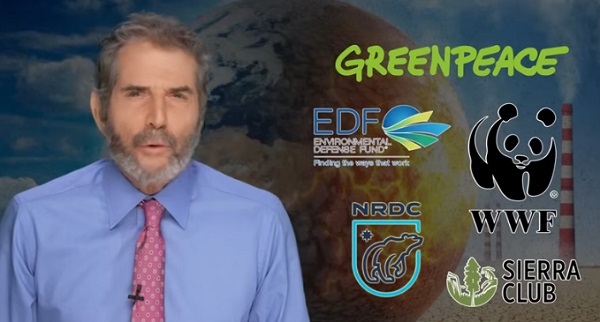Opinion
Sports will bankrupt this city unless City Hall becomes more pro-active or take an activist role.


What is it about sports that needs bail outs and subsidies. The winter games will be costing us for years yet, with million-dollar payments to the college for the ice rink alone. The Westerner needed emergency bail outs to stay afloat. The CFR agreement needed a rewrite. Now the Riverbend Golf Course?
Recently I read in the news about conflicting goals at Riverbend Golf Course and the surrounding facilities like the trails and the waterpark.
The golf course wants a bigger club house, more bathrooms and parking for example. Then I hear that they have not been paying their debt from the last expansion in 2004, 18 years ago. As I understand it, they have only paid $125,000 of a $1.7 million dollar loan, about 7%.
The city has had council representation and citizen representation on the board, and yet this happens. The Westerner Grounds nearly bankrupted itself recently under similar circumstances. The city’s representative never questioned the status quo, just quietly accepted it.
Would the city accept me not paying my property taxes five out of every 6 years because I want to expand and add more bathrooms to my house?
My children and grandchildren went and are going to school, and we fundraise, sell things, working bingos, casinos, collect bottles and hold raffles. The hospitals where they were born fundraise, the SPCA fund raise.
When they entered sports like hockey, soccer, BMX, baseball, football etc. they hold raffles, have garage sales, bottle drives, sold coupons, meat, ice salt etc. to raise money.
Can the golf club follow suit to get out of being a drain on the public purse, while keeping their big dreams?
Our great city needs to look at their return on investments sometime. Instead of bail outs at the last minute every time. They need to be pro-active and not just reactive.
The city owns the land they could lease it to a private operator, perhaps make a return or at least reduce the costs to the taxpayers.
Perhaps, someone could just question things? Perhaps, the city could look at being more of an activist shareholder or appoint more activist representation?
Is it just easier to write cheques? I think the golf course will see this debt forgiven or rolled into a bigger loan for another expansion. After all, it is just the taxpayers’ money. Just saying.
Garfield Marks
John Stossel
The Green Industrial Complex: Power, Panic, and Profits

From StosselTV
Media portray environmental groups as the underdog. In reality, they’re the big guys, and today they’re rolling in money.
What’s worse is how they use it.
First, they peddle scares. They say polar bears are disappearing. They aren’t. They claim bees are dying off. Also not true. They spread these lies to get MORE money.
“Hysteria generates donations,” explains science writer Jon Entine. “The oxygen for these organizations is money donated by people who think they’re doing good.” It’s why Big E now receives billions in donations.
It’s bad enough that they lie to us to get paid. But they also use their money to block progress. One group boasts, “In the past year our legal team has stopped thousands of miles of fossil fuel pipelines and dozens of large power plants.”
They even oppose solar and wind farms. “It’s a shame,” argues Cato Institute’s Travis Fischer, “When I think about what America could be … we could be so much more prosperous than we are.”
Our video covers more ways Big E blocks progress.
After 40+ years of reporting, I now understand the importance of limited government and personal freedom.
——————————————
Libertarian journalist John Stossel created Stossel TV to explain liberty and free markets to young people.
Prior to Stossel TV he hosted a show on Fox Business and co-anchored ABC’s primetime newsmagazine show, 20/20. Stossel’s economic programs have been adapted into teaching kits by a non-profit organization, “Stossel in the Classroom.”
High school teachers in American public schools now use the videos to help educate their students on economics and economic freedom. They are seen by more than 12 million students every year.
Stossel has received 19 Emmy Awards and has been honored five times for excellence in consumer reporting by the National Press Club.
Other honors include the George Polk Award for Outstanding Local Reporting and the George Foster Peabody Award.
———
To make sure you receive the weekly video from Stossel TV, sign up here: https://johnstossel.activehosted.com/f/1
—— —
Fraser Institute
Democracy waning in Canada due to federal policies

From the Fraser Institute
By Lydia Miljan
In How Democracies Die, Harvard political scientists Steven Levitsky and Daniel Ziblatt argue that while some democracies collapse due to external threats, many more self-destruct from within. Democratic backsliding often occurs not through dramatic coups but through the gradual erosion of institutions by elected leaders—presidents or prime ministers—who subvert the very system that brought them to power. Sometimes this process is swift, as in Germany in 1933, but more often it unfolds slowly and almost imperceptibly.
The book was written during Donald Trump’s first presidential term, when the authors expressed concern about his disregard for democratic norms. Drawing on Juan Linz’s 1978 work The Breakdown of Democratic Regimes, Levitsky and Ziblatt identified several warning signs of democratic decline in Trump’s leadership: rejection of democratic rules, denial of the legitimacy of political opponents, tolerance or encouragement of violence, and a willingness to restrict dissent including criticism from the media.
While Trump is an easy target for such critiques, Levitsky and Ziblatt’s broader thesis is that no democracy is immune to these threats. Could Canada be at risk of democratic decline? In light of developments over the past decade, perhaps.
Consider, for example, the state of free speech and government criticism. The previous Liberal government under Justin Trudeau was notably effective at cultivating a favourable media environment. Following the 2015 election, the media enjoyed a prolonged honeymoon period, often focusing on the prime minister’s image and “sunny ways.” After the 2019 election, which resulted in a minority government, the strategy shifted toward direct financial support. Citing pandemic-related revenue losses, the government introduced “temporary” subsidies for media organizations. These programs have since become permanent and costly, with $325 million allocated for 2024/25. During the 2025 election campaign, Mark Carney pledged to increase this by an additional $150 million.
Beyond the sheer scale of these subsidies, there’s growing concern that legacy media outlets—now financially dependent on government support—may struggle to maintain objectivity, particularly during national elections. This dependency risks undermining the media’s role as a watchdog of democracy.
Second, on April 27, 2023, the Trudeau government passed Bill C-11, an update to the Broadcasting Act that extends CRTC regulation to digital content. While individual social media users and podcasters are technically exempt, the law allows the CRTC to regulate platforms that host content from traditional broadcasters and streaming services—raising concerns about indirect censorship. This move further restricted freedom of speech in Canada.
Third, the government’s invocation of the Emergencies Act to end the Freedom Convoy protest in Ottawa was ruled unconstitutional by Federal Court Justice Richard Mosley who found that the government had not met the legal threshold for such extraordinary powers. The same day of the ruling the government announced it would appeal the 200-page decision, doubling down on its justification for invoking the Act.
In addition to these concerns, federal government program spending has grown significantly—from 12.8 per cent of GDP in 2014/15 to a projected 16.2 per cent in 2023/24—indicating that the government is consuming an increasing share of the country’s resources.
Finally, Bill C-5, the One Canadian Economy Act, which became law on June 26, grants the federal cabinet—and effectively the prime minister—the power to override existing laws and regulations for projects deemed in the “national interest.” The bill’s vague language leaves the definition of “national interest” open to broad interpretation, giving the executive branch unprecedented authority to micromanage major projects.
Individually, these developments may appear justifiable or benign. Taken together, they suggest a troubling pattern—a gradual erosion of democratic norms and institutions in Canada.
-

 Frontier Centre for Public Policy2 days ago
Frontier Centre for Public Policy2 days agoCanada’s New Border Bill Spies On You, Not The Bad Guys
-

 Addictions1 day ago
Addictions1 day agoWhy B.C.’s new witnessed dosing guidelines are built to fail
-

 Business1 day ago
Business1 day agoCarney Liberals quietly award Pfizer, Moderna nearly $400 million for new COVID shot contracts
-

 Business1 day ago
Business1 day agoMark Carney’s Fiscal Fantasy Will Bankrupt Canada
-

 Energy2 days ago
Energy2 days agoCNN’s Shock Climate Polling Data Reinforces Trump’s Energy Agenda
-

 Opinion1 day ago
Opinion1 day agoCharity Campaigns vs. Charity Donations
-

 Red Deer1 day ago
Red Deer1 day agoWesterner Days Attraction pass and New Experiences!
-

 COVID-191 day ago
COVID-191 day agoTrump DOJ dismisses charges against doctor who issued fake COVID passports






